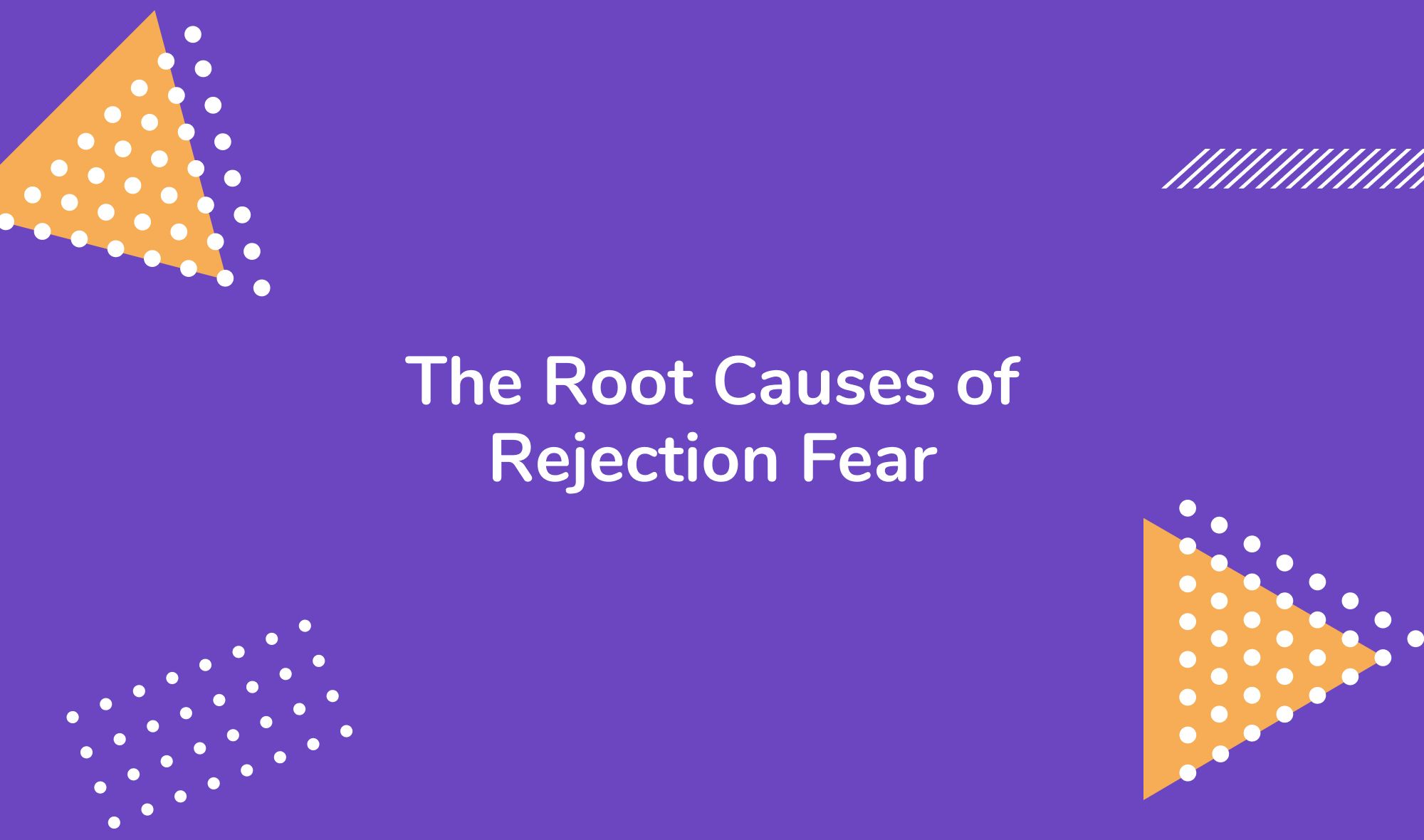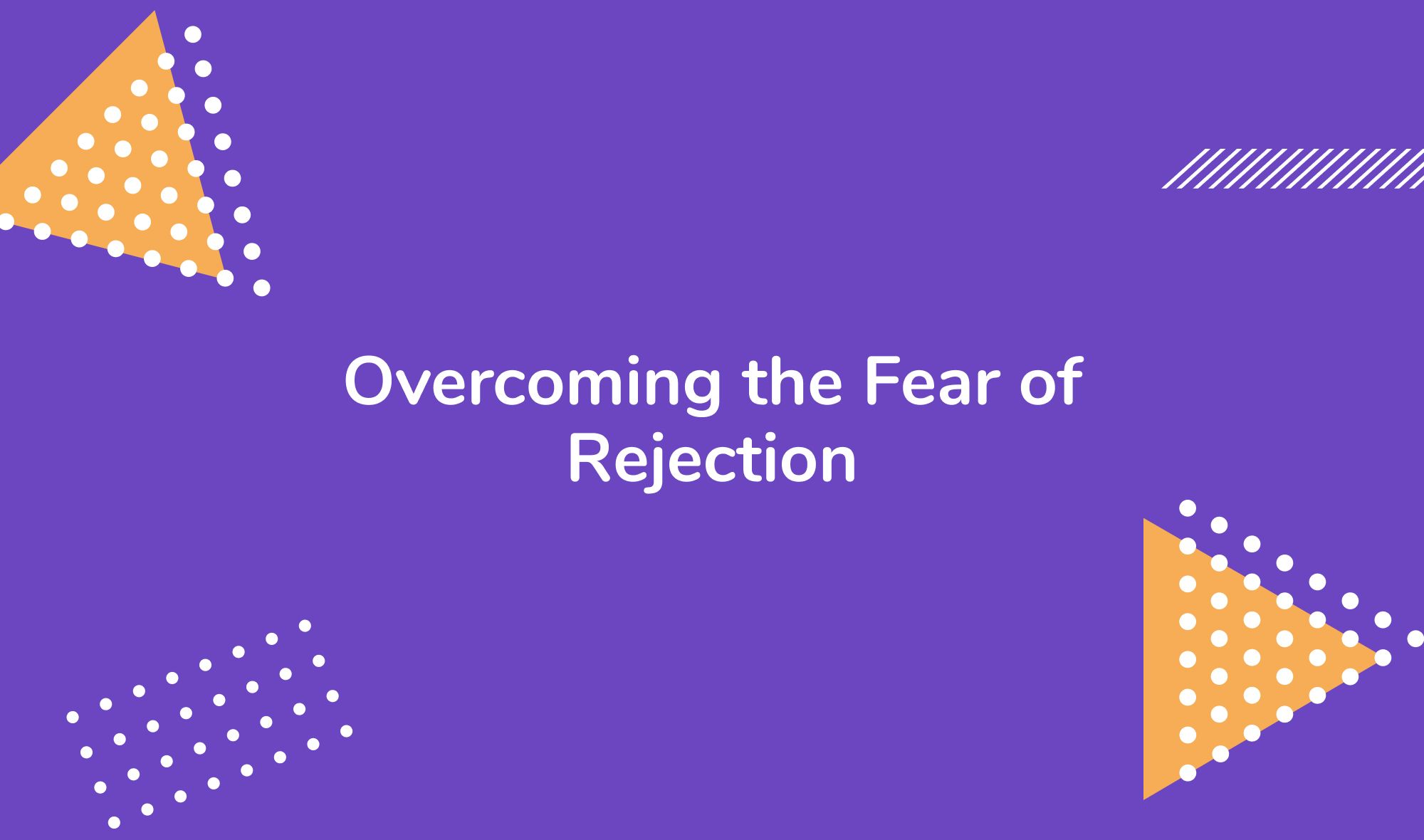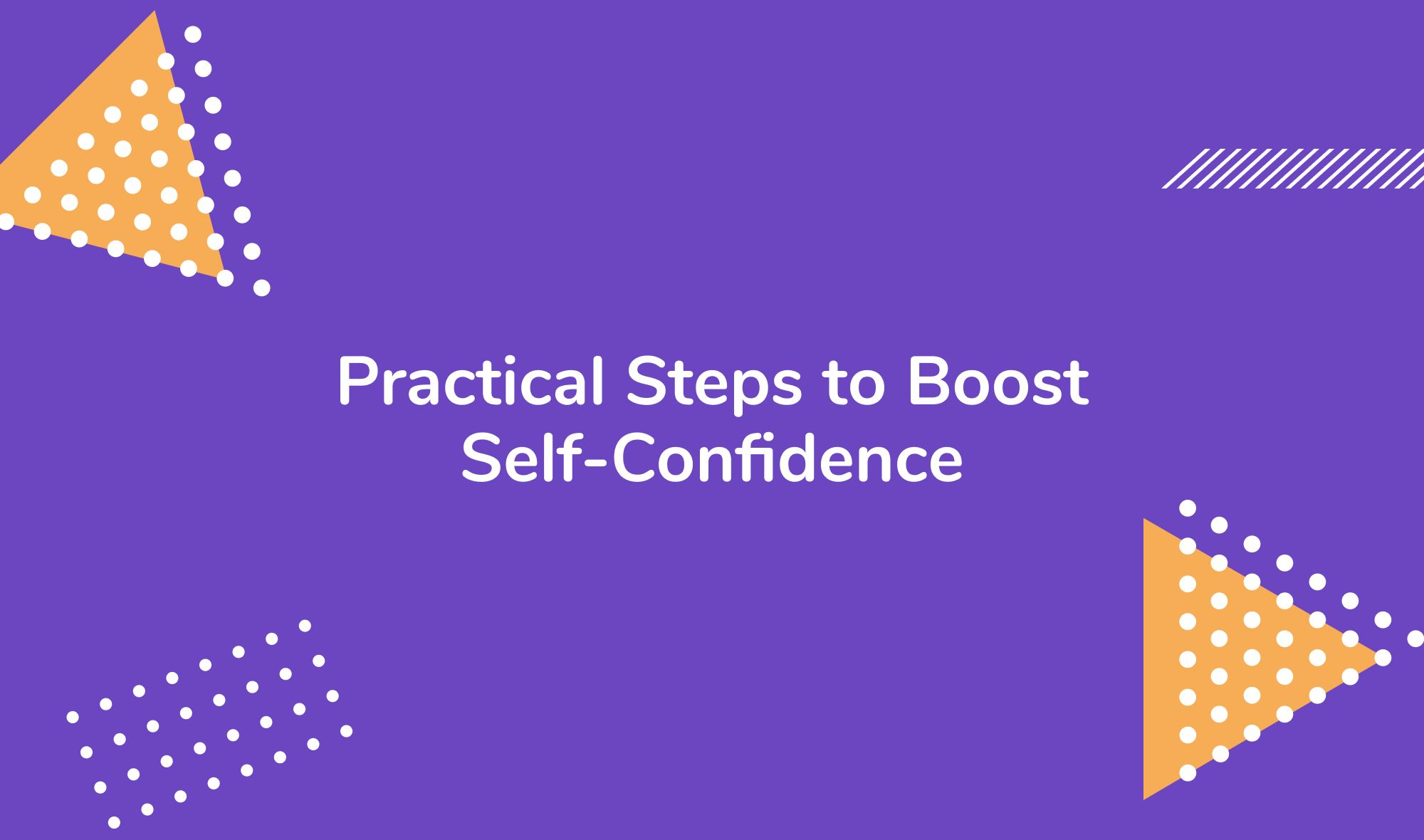The Root of Rejection Fear and Its Impact on Self-esteem
By Julian Lewis • July 11, 2023
Key Takeaways
- Fear of rejection can stem from various factors and significantly affect our self-esteem.
- Overcoming rejection fear is a unique, personal journey that demands patience, self-compassion, and resilience.
- Fear of rejection can create a self-fulfilling prophecy, further impacting our confidence.
- There are practical ways to face and overcome this fear, leading to increased self-confidence and improved mental health.

Rejection. It's a word that strikes fear in the hearts of many, causing instant discomfort. It evokes feelings of unworthiness, doubt, and fosters a tendency to question one's own self-worth. We've all been there - feeling the sting of rejection, a deep pain that goes beyond the physical, a wound that etches itself in our psyche. The fear of rejection, hence, is not merely a state of mind. It's an emotion deeply ingrained in our lives, shaping the way we interact with the world, coloring our relationships, and often leading to low self-esteem and a lack of self-confidence.
The American Psychiatric Association, in its Diagnostic and Statistical Manual, does not explicitly list the fear of rejection as a mental disorder. However, the psychological implications it has on a person's life, often giving rise to various mental health issues, cannot be understated.
This fear can affect all aspects of a person's life, from personal relationships to professional endeavors. This blog post, presented by Zella Life, aims to delve into this pervasive fear, exploring its origins, its impact, and importantly, how to overcome it. By understanding and confronting our fear of rejection, we can learn to navigate this discomfort and foster self-compassion, ultimately paving the way for improved mental health and self-confidence.
Whether you are afraid of rejection in love, dreading public speaking due to fear of audience rejection, or letting the fear of failure inhibit your professional growth, remember, you're not alone. Numerous people struggle with similar fears and feelings, and understanding these fears is the first step towards overcoming them.
Through this post, we hope to shed light on the many facets of rejection fear and provide practical insights to help you on your journey towards self-confidence. Let's embark on this transformative journey at our own pace, embracing every learning opportunity along the way.
Join our Newsletter
Transform your career with our personal growth insights. Get one valuable tip right in your inbox every Saturday morning.
Understanding Rejection Fear
Before we delve into strategies to overcome fear, it's crucial to fully comprehend the concept of rejection fear and the many ways it manifests in our lives.
Definition of Rejection Fear and Rejection Phobia
At its core, rejection fear, or the fear of rejection, is a deep-seated emotional response to the perceived risk of being turned down, hurt, or not accepted by others. The thought of not meeting the expectations of others often evokes this fear, fueling self-doubt and self-criticism. It's a fear that goes beyond the boundaries of reason, leading to what some may term as 'rejection phobia' - an intense and irrational fear of being rejected by other people.
Signs and Symptoms of Fear of Rejection
The symptoms of fear of rejection vary from person to person, ranging from anxiety and distress to withdrawal and avoidance of social situations. Key signs include:
- Excessive self-consciousness and anxiety in everyday social situations
- A constant need for reassurance and approval from others
- Avoidance of activities or situations due to a fear of failure or embarrassment
- Negative self-talk and low self-esteem
- Over-sensitivity to criticism, taking it as a personal affront
- Difficulty in making and maintaining relationships due to the fear of rejection
Fear of Rejection in Love: A Closer Look
The fear of rejection in love can be particularly crippling, leading individuals to avoid potential romantic relationships or to cling too tightly to existing ones out of fear of being abandoned. Marc Schoen's book "Your Survival Instinct Is Killing You" offers profound insights into this subject and provides useful strategies to overcome such fears.
The Role of Self-Awareness
Recognizing and understanding our emotions is a critical step towards overcoming fear of rejection. Developing self-awareness can help us recognize our fear triggers, understand our reactions, and devise strategies to manage our fears. You can explore more about the concept of self-awareness in this comprehensive post from Zella Life.
The Root Causes of Rejection Fear

Understanding the root causes of fear can empower us to tackle the issues from their core, promoting lasting change and improved mental health.
Possible Origins of the Fear
The fear of rejection often has its roots in early life experiences. It could emerge from painful childhood experiences, such as being excluded by peers or feeling unloved by caregivers. Other triggers can include traumatic experiences of rejection or abandonment in adolescence or adulthood. The American Psychiatric Association, in its Diagnostic and Statistical Manual, recognizes that such experiences can contribute significantly to various mental health issues.
The Link Between Rejection Fear and Low Self-Esteem
There is a strong correlation between fear of rejection and low self-esteem. Those with poor self-esteem often anticipate rejection as they may not view themselves as worthy of acceptance or love. This tendency becomes a self-fulfilling prophecy as the fear of rejection causes them to act in ways that result in the very rejection they fear.
Low self-esteem and fear of rejection can form a vicious cycle. People with low self-esteem often fear rejection, and each experience of rejection, in turn, lowers their self-esteem. In his book, "Why Nobody Told Me This Before", Dr. Gabor Mate explores this connection in depth, offering valuable insights for those struggling with self-esteem and rejection issues.
The Role of Resilience in Overcoming Fear
Resilience plays a key role in dealing with rejection fear and building self-esteem. By fostering resilience, we can reduce our fear of rejection, build our self-confidence, and enhance our ability to bounce back from negative experiences. To better understand the concept of resilience and its potential for overcoming fear, I recommend this informative post on Unlocking Employee Resilience from Zella Life.
The Self-Fulfilling Prophecy of Fear Rejection

Understanding the mechanics of fear of rejection is key to overcoming it. One particularly powerful dynamic is the self-fulfilling prophecy.
How Fear of Rejection Can Create a Self-Fulfilling Prophecy
The fear of rejection can indeed create a self-fulfilling prophecy. Here's how: When we fear rejection, we often engage in protective behaviors to avoid the potential pain. We might avoid social events, refrain from taking risks, or hold back from expressing our true feelings, all to avoid the risk of being rejected. However, these behaviors can make us appear aloof or unapproachable, leading others to reject or avoid us—the very outcome we feared in the first place.
Join our Newsletter
Transform your career with our personal growth insights. Get one valuable tip right in your inbox every Saturday morning.
Its Impact on Self-Esteem and Self-Confidence
This cycle of fear and rejection has a detrimental effect on self-esteem and self-confidence. The more we fear rejection, the more we avoid situations that could lead to rejection, and the more isolated and unsure of ourselves we become. Our self-confidence takes a hit every time we allow our fear to dictate our actions.
In the transformative book "The Mountain Is You: Transforming Self-Sabotage Into Self-Mastery", Brianna Wiest explores this cyclical dynamic in depth and provides actionable strategies for breaking free from the self-sabotage of fear.
The Connection Between Fear of Rejection and Imposter Syndrome
Fear of rejection is closely tied to imposter syndrome, a psychological pattern where individuals doubt their abilities and fear being exposed as a fraud. People with imposter syndrome often fear that others will reject them if their perceived inadequacies are exposed. This fear can lead to overworking, perfectionism, and burnout. To learn more about imposter syndrome and its relation to fear of rejection, consider reading our post about imposter syndrome at work on Zella Life.
Overcoming the Fear of Rejection

The process of overcoming fear of rejection requires courage, patience, and a plan. It's important to tackle this fear head-on because it can have a significant impact on our quality of life, limiting our potential for personal growth and the development of meaningful relationships.
Why It's Important to Face This Fear
Fear of rejection can hold us back in many areas of life. It can prevent us from taking risks, trying new things, or forming new relationships. The longer we avoid confronting this fear, the more power it has over us. By facing and overcoming our fear of rejection, we open the door to new possibilities and experiences. We gain confidence in our ability to handle rejection, which allows us to take more risks and expand our comfort zone.
Strategies to Overcome Fear of Rejection
Overcoming fear of rejection is not about avoiding or suppressing the fear, but about learning how to manage it effectively. Here are some strategies to consider:
- Recognize and validate your fear. Fear of rejection is a universal human experience, and it's okay to feel it. Recognizing and validating your fear is the first step toward overcoming it.
- Challenge your negative thoughts. When you notice negative self-talk, challenge these thoughts with facts and positive affirmations.
- Practice self-compassion. Be kind to yourself when you're struggling with fear. Remember that it's okay to make mistakes and experience rejection—it's part of the learning process.
- Seek professional support. A professional coach or therapist can provide tools and strategies to help you manage your fear of rejection.
For additional strategies, the book "The Power of Letting Go: How to Drop Everything That’s Holding You Back" by John Purkiss is an excellent resource.
And on Zella Life, you can find a wealth of resources and strategies for personal and professional development, including a blog on unlocking professional success with soft skills training, which can help you develop resilience in facing fear of rejection.
Practical Steps to Boost Self-Confidence in the Face of Rejection

Facing and overcoming fear of rejection is a transformative process that can significantly boost your self-confidence. Here are some practical steps you can take to improve your self-confidence as you navigate this journey:
Methods to Improve Self-Confidence
- Acknowledge Your Achievements: Recognize your successes, no matter how small they may seem. Each victory is a testament to your abilities and strengths.
- Set and Meet Personal Goals: Setting realistic, achievable goals can provide a powerful boost to your self-confidence. Each goal you meet reinforces your ability to succeed.
- Practice Self-Care: Regular exercise, a balanced diet, and adequate sleep can all contribute to a healthy self-image, which in turn boosts self-confidence.
- Affirm Yourself: Use positive affirmations to counteract negative self-talk. Remind yourself of your worth and abilities every day.
For more tips and practices on self-love, read our comprehensive article, Why You Should Learn To Love Yourself First.
How Getting Over Fear of Rejection Can Help Boost Self-Confidence
When we overcome our fear of rejection, we prove to ourselves that we can handle discomfort and adversity, which in turn boosts our self-confidence. We learn to take risks and step outside our comfort zone, experiences that build resilience and self-assuredness. And as we expose ourselves to potential rejection and navigate it successfully, we reinforce a positive self-image and belief in our abilities.
In the end, remember that each person's journey with self-confidence and fear of rejection is unique. It's important to move at your own pace and to not compare your progress with others.
For further insight on how to become an effective individual in any area of life, visit our individual contributor blog post on Zella Life.
In Conclusion
Confronting and overcoming the fear of rejection is not an easy task, but it's a journey worth embarking on. By acknowledging our fears, understanding their roots, and taking steps to address them, we can slowly untangle the negative emotions tied to rejection. It's important to remember that each person's path towards this goal is unique—what matters most is that we make the journey at our own pace, step by step.
As we learn to embrace the possibility of rejection, we unlock the potential to increase our self-confidence, improve our mental health, and foster self-compassion. This shift in perspective can profoundly impact our lives, helping us to live more authentically and take risks that lead to growth and fulfillment.
At Zella Life, we believe in the power of transforming fear into resilience. Our hope is that this guide serves as a stepping stone on your path towards greater self-confidence and the freedom to live life without the crippling fear of rejection.
Remember, the journey is just as important as the destination. With each day, you are becoming stronger, braver, and better equipped to face whatever comes your way. Keep going.
Read more about: Well-being, Imposter Syndrome
About Julian Lewis
Julian Lewis is a driven and accomplished professional with a passion for driving positive change in the business world. He is the co-founder and COO at Zella Life.
His own experience as a professional of color in a Fortune 500 company led him to discover the limitations for advancement that many professionals like himself face. Determined to reach his full potential, Julian became an established business coach and entrepreneur, committed to supporting others in their pursuit of personal and professional growth.
Today, Julian is a recognized corporate trainer, coach, and leader, known for his ability to leverage real-life experiences and evidence-based methodologies to affect positive change within individuals and organizations. As the leader of Zella Life's coaching division, he is dedicated to empowering individuals and businesses to achieve their full potential.